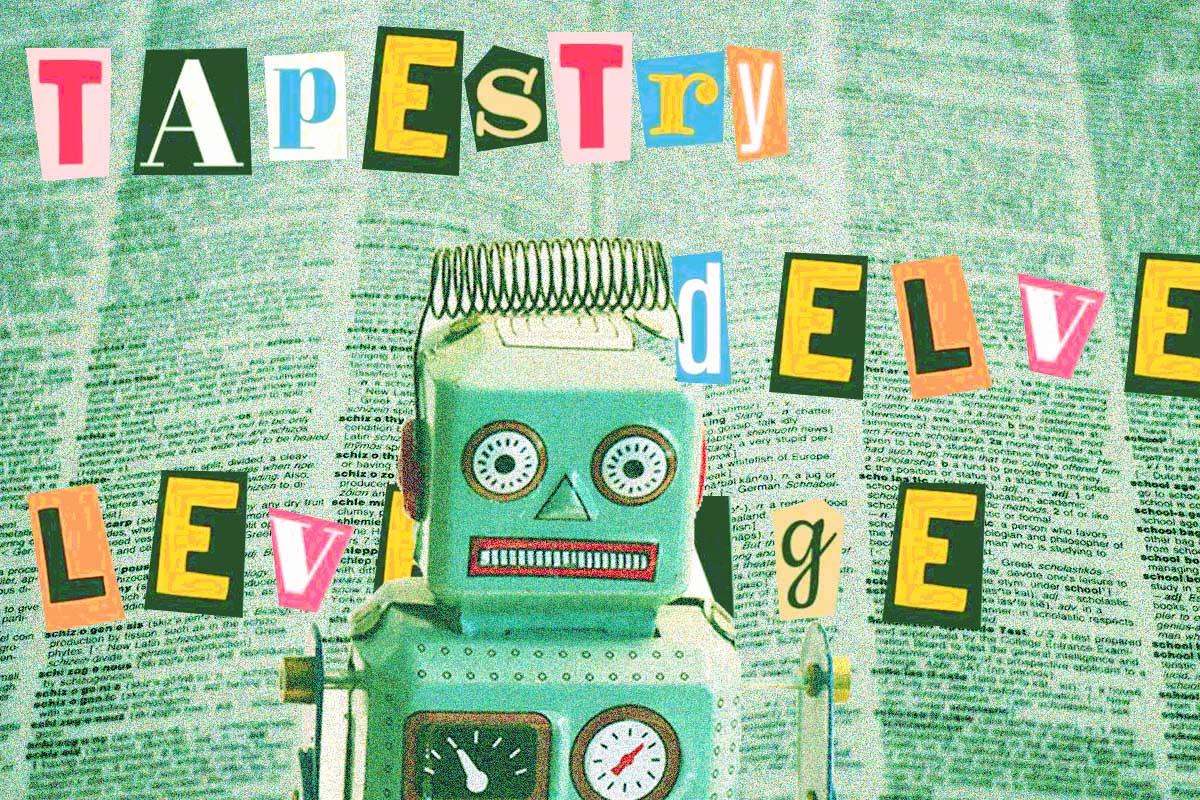
Content writing in the age of AI – and how not to sound like a machine

Crafting a good text takes a lot of work in choosing the right words, and in using them parsimoniously. While some words will necessarily be repeated throughout the text, you will want to save some – such as “parsimoniously” – to the truly important moments of your narrative.
Avoiding repetition is indeed a big concern for any writer. If you ever found yourself transposing large amounts of numerical data into text, you surely struggled with the amount of times “increase” and “decrease” come up. So you turn to the thesaurus in search of synonyms.
How AI is shaping our vocabulary
Formal or informal, outdated or contemporary, rushed or well-thought. The words you choose will determine how your content is perceived in subtle ways, and is important to keep up with vocabulary tendencies if you want to strike the right tone.
Words go in and out of style for many different reasons. Sometimes, the fault is the object they describe. Nobody uses the word “pager” anymore simply because nobody carries a pager.
Some words, however, seem to become fashionable or tacky in a more seamless way – they are less like the Walkman and more like skinny jeans. And much like in fashion, the overuse of a word can spell its demise – think of corporate jargon like “touch base” or “circle back”.
AI is becoming a new source of overused words. With more people using it to automate their writing – and not always applying their best judgement when it comes to editing the result – some words seem to be creeping into more and more content.
One particularly has caught the attention. The word “delve” seems to be beloved by AI, as noted by Jeremy Nguyen, from the Swinburne University of Technology in Melbourne, in his analysis of the use of the word on PubMed, an aggregator of biomedical scientific literature.
The overuse of words such as “delve”, or “tapestry” and “leverage”, is considered one of the reasons why content written by large language models such as chatGPT sounds soulless and unnatural.
Afraid of sounding like a machine?
Content generated by AI is becoming more prevalent on the internet across all mediums, including text.
From legitimate concerns about google searches becoming worse due to the amount of AI-generated content, to cataclysmic claims that the internet is dead and only bots and content generated by large language models survived, there is a lot that can be said about AI and content.
For now, let us stay focused on how the content is perceived by the reader. Even from someone that casts a positive light on AI-generated content, “sounding like AI” does not come off as a compliment.
To the human writer, such remark will certainly feel devastating. So it is pretty established that is not a sentence we do not wish to hear.
Should content writers therefore be terrified of failing the Turing test? I don’t think so. The most important is to remain critical and responsive throughout every stage of a project, whether or not you are using AI tools.
If you successfully incorporate the voice of your client in the text, chances are it will sound human and natural. If you make full use of your command over the language, you will be more likely to avoid the dreaded repetition of words like “delve”.

